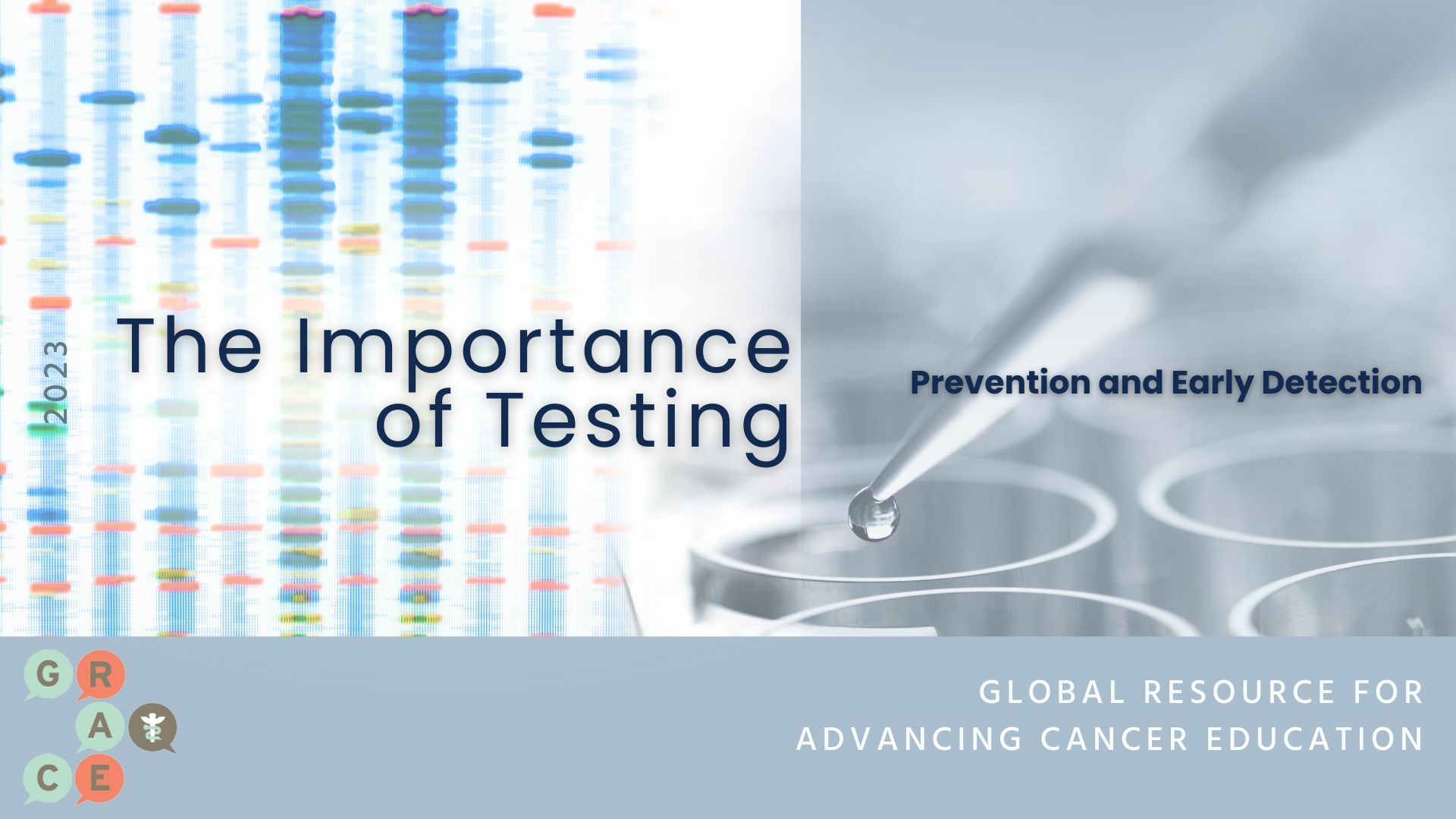Article and Video CATEGORIES
Here's the typical scenario for someone with an EGFR mutation who has a good response to an EGFR tyrosine kinase inhibitor (TKI). After a year or so, scans begin to show that a few of the lung lesions are progressing, but slowly, and there is often still far less overall disease even after a few months and a couple of scans than the person started with. We may not be inclined to make any changes at first, but by a few months in, the progression is enough that it's hard to ignore the sense that you need to make a change. At that point, the most common approach is to start chemotherapy, often a regimen like you would start someone on with advanced NSCLC if they didn't have an EGFR mutation. But then you're faced with a key question: do you continue the EGFR TKI and give it now combined with chemotherapy (or potentially with Avastin (bevacizumab) and chemo together), or do you discontinue the EGFR TKI?
Classically, when someone progresses on anticancer therapy, we've discontinued it and not looked back. When your cancer becomes resistant to a treatment, we've presumed that there isn't a benefit to returning to it. But perhaps there's reason to question that when you have a cancer that appears to be largely driven by a core "driver mutation" and in which, when there is progression, you see what appears to be a mixed picture of some progression along with some still controlled disease. Imagining what is happening on a cellular level, if you look at the figure above (from a very good review by Dr. Geoffrey Oxnard and colleagues in Clinical Cancer Research, 2011), it's likely that at the time of progression, there are a combination of EGFR TKI-resistant cells (the red ones), and EGFR TKI-sensitive cells (the blue ones). Should treatment be with a combination of chemotherapy, to treat the newly EGFR TKI-resistant cells, while continuing the EGFR TKI to treat the residual subset of EGFR TKI-sensitive cells? Or is it just time to move the new strategy, thinking it might address both subpopulations of cells?
There are a few factors that are relevant here. First, it's worth bearing in mind that while the classic concept in oncology is that you leave previously tried cancer treatments behind when a person progresses, this doesn't necessarily apply to the targeted therapies working against a well targeted population. Chronic myelogenous leukemia (CML), which is driven by a critical genetic alteration (bcr-abl), entered a new era when the inhibitor of bcr-abl known as Gleevec (imatinib) became available. But patients become resistant to it, the dose of Gleevec can be increased, or a next generation inhibitor of the same target can then work to control CML. In HER2/neu (HER2)-positive breast cancer, the antibody against HER2 known as Herceptin (trastuzumab) can be very effective, but there is now evidence that there is a significant benefit in progression-free survival and response rate when patients who progressed on Herceptin are given a new chemo combined with ongoing Herceptin, compared with the same new chemotherapy alone:
Another very important issue is that a minority of patients with an EGFR mutation who come off of an EGFR TKI at the time of acquired resistance can experience a sudden acceleration of their disease progression (potentially referred to as a "disease flare") that has been reported to lead to hospitalization or even death in 20-25% of patients in a series from Memorial Sloan-Kettering Cancer Center. That proportion seems quite a bit higher than I think is truly the case in the world outside of Memorial Sloan-Kettering, but it's a real phenomenon. Moreover, patients who progress rapidly can then improve when they restart on an EGFR TKI (a concept we'll return to).
At ASCO this year, a retrospective analysis of data compared outcomes from 78 patients in Boston (Massachusetts General Hospital, Dana Farber Cancer Institute, and Brigham & Women's Hospital) with an EGFR mutation and acquired resistance who had received either chemotherapy alone (44 patients) or chemotherapy with continued EGFR TKI (34 patients). They found that the response rate was significantly higher with the chemo/EGFR TKI combination than with chemotherapy alone. The waterfall plots below show the distribution of tumor progression vs. shrinkage for the two conditions of chemotherapy alone (top) and chemotherapy with EGFR TKI (bottom), in which bars going down represent tumor shrinkage, bars going up represent tumor progression, the length of the bars are proportional to the degree of change, and results that meet the criteria for response are represented by bars in red:
Importantly, there were no meaningful differences between the two groups in either progression-free or overall survival. Overall, the findings are limited by being retrospective rather than randomized (so there may have been significant differences for why one patient was assigned one approach and why another would be recommended to pursue the alternative), but they at least suggest that at least there isn't any detrimental effect from the combination of chemo with ongoing EGFR TKI therapy.
There are a couple of studies being conducted that will attempt to answer this question directly and prospectively. First, a study being done outside of the US, called IMPRESS, is evaluating patients with an activating EGFR mutation who were treated with the EGFR TKI Iressa (gefitinib), developed progression/acquired resistance, and are then randomized to chemotherapy with cisplatin/Alimta (pemetrexed) alone or the same chemotherapy with continuation of the Iressa:
Notably, this study doesn't require patients assigned to chemo alone to subsequently return to EGFR TKI therapy "re-treatment", but re-treatment is a component of a very similar trial being done in the US and led by Leora Horn from Vanderbilt, except that the EGFR inhibitor is Tarceva (erlotinib) instead of Iressa, and patients assigned to chemo alone at the time of acquired resistance are put back on Tarceva at the time of progression on chemo to see whether patients will benefit from re-treatment and potentially do better than the chemo/EGFR TKI arm because of resensitization to the EGFR TKI after a period off of it:
Obviously, a key question here is whether re-treatment adds a benefit that might counterbalance the benefit it appears we might see from continuing the EGFR TKI at acquired resistance. Will continue on this topic of re-treatment, and some actual evidence from ASCO to speak to this issue, in another post very soon.
Please feel free to offer comments and raise questions in our
discussion forums.
Forum Discussions
Hi Blaze,
As much as I hate to say it, Welcome back Blaze. It sounds like you're otherwise feeling good and enjoying life which is a wonderful place to be. ...
Waiting for my appointment with oncologist this morning. Thank you for the response. It helps. <3
It sounds like you’re thinking of this in a very appropriate way. Specifically, it sounds like the growth of the nodule is rather modest, though keep in mind that the change...
Hi and welcome to GRACE. I'm sorry your mom is having this difficulty. An indwelling catheter is used when the pleura space continually fills and the catheter is always there to...










